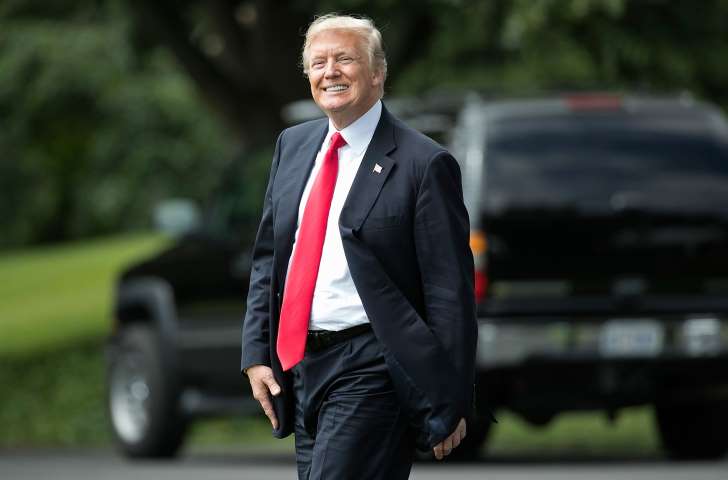Selection of FBI director wasn't simple in Trump's chaotic White House

Before choosing former Justice Department official Christopher A. Wray to lead the FBI, President Trump spent a month working through a long list of politicians, former prosecutors and others, in a chaotic month for a White House still struggling to fill many key positions.
Trump abruptly fired James B. Comey on May 9, acknowledging that his frustration about the expanding probe into Russian election interference was on his mind. And he took the action without a strong notion of who he wanted to replace Comey.
In the weeks that followed, a parade of candidates trooped through the Justice Department and White House for interviews in an unusually public display. Several of the leading candidates came from Congress, including former Sen. Joe Lieberman of Connecticut, who at one point was considered the front-runner for the position. But after the Comey firing, some members of Congress were leery of the idea of having a political figure running the bureau.
Lieberman eventually withdrew his name from consideration, along with Sen. John Cornyn (R-Texas), and Rep. Trey Gowdy (R-S.C.). At least three other candidates also pulled their names from a shortlist for the job, including Michael J. Garcia, a New York judge and former U.S. attorney; former FBI official Richard McFeely; and Alice Fisher, a former assistant attorney general.
Aside from the job of FBI director, Trump has been having trouble finding people willing to join the administration – including key positions in agencies and even in the White House, where he is still searching for a new communications director.
Trump settled on Wray after interviewing him last week at the White House, along with former Transportation Security Administration Director John Pistole.
Wray has a long history at the Justice Department, starting in 1997 with a job as a federal prosecutor in Georgia. He came to Washington in 2001 and eventually rose to a job as head of the criminal division. Now in private practice, he represents clients in white collar investigations, notably New Jersey Gov. Chris Christie in the “Bridgegate” probe.